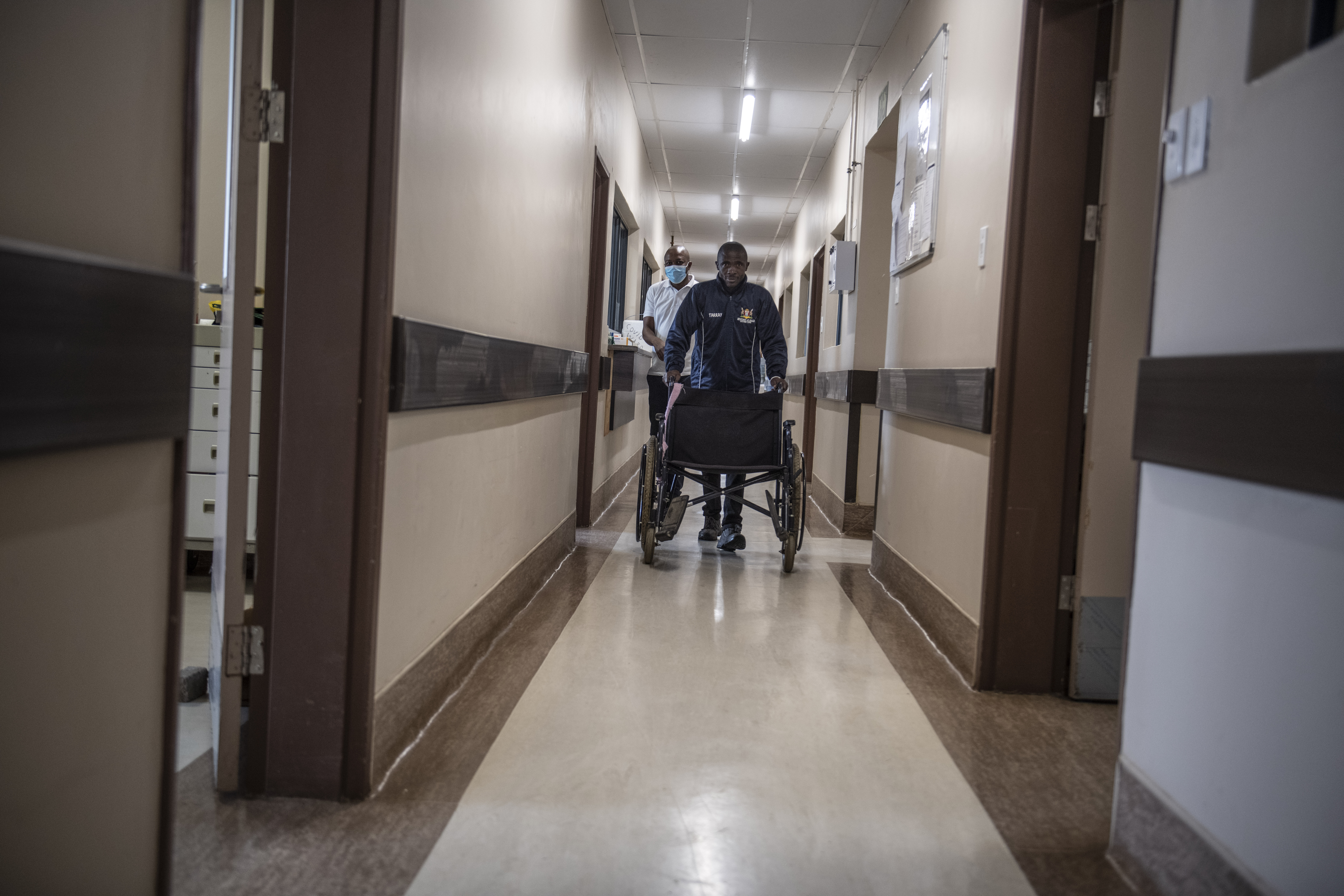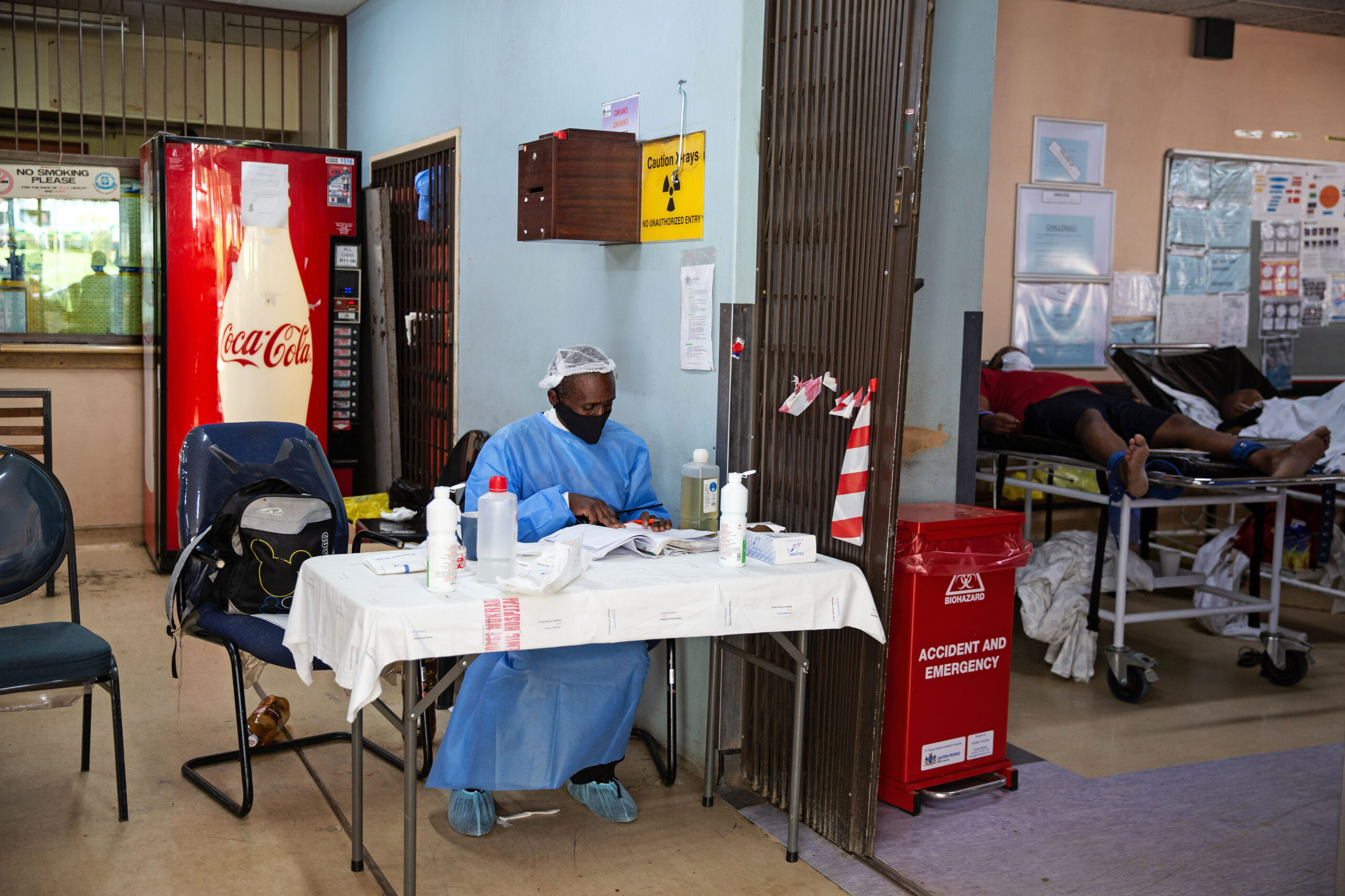© Copyright Bhekisisa Centre for Health Journalism | Privacy Policy | Terms and Conditions | PAIA Manual
#UNGA78: What the NHI means for universal health coverage in SA
The third day of high-level meetings at the 78th United Nations General Assembly is dedicated to talks on universal health coverage. In South Africa, this means talking about the proposed National Health Insurance fund — something that’s getting people hot under the collar. We’ve put together a one-stop page with information to support constructive debate.
#UNGA78: How SA’s mRNA hub is teaching the world about preparing for the next...
We will see more pandemics like COVID in the future — which is why political leaders are convening in New York today at the United Nations first ever high-level meeting on pandemic preparedness. Being able to make vaccines locally can stop Africa having to be at the back of the queue waiting for medicines the next time round. Here’s how.
More bullying? J&J will be investigated for high TB drug prices and abuse of...
South Africa’s Competition Commission will investigate the American drugmaker Johnson & Johnson for the high price it has been charging the country for the tuberculosis medicine bedaquiline, as well as for extending the tablets’ 20-year patent to block cheaper generics from entering the country.
R13 000 for a packet of pills to thwart long COVID. Is it worth...
Up to one in five people can get long COVID — a condition in which someone keeps on feeling ill for months after their initial symptoms have cleared up. A drug called Paxlovid can lower the chance of developing the long-haul version of COVID. But at what cost?
In the bag: How buying healthy food for R115 a month can curb TB...
In rural India, people with TB got healthy food parcels and vitamin pills. Their chance of dying from the disease dropped by 60% and passing on the infection to someone in their family fell by 40%.
The heat is on: Why climate change will leave you gasping for air
Our burning fossil fuels makes the Earth warmer, causing weather patterns to change. In areas with lots of air pollution, this can make it even harder for people with lung diseases to breathe. And those who have least, will be affected most.
Why so many government patients get cervical cancer — and what to do about...
Thousands of South African women die of cervical cancer, caused by the human papillomavirus, every year. But it needn’t be so: it’s preventable and treatable — if caught early enough. Gynaecologic oncologist Langanani Mbodi explains to Mia Malan what can be done to help government patients.
How lessons from HIV programmes are keeping diabetes and cancer patients alive
HIV home visits in a Malawi village worked so well that the same visits are not also being used for conditions such as diabetes, high blood pressure and cancer.
Why your toilet water is turned into drinking water — and which provinces get...
Is the water in your tap safe? What about cleaning that in storage tanks? In this Health Beat interview, Mia Malan speaks to environmental scientist Ayesha Laher about the state of South Africa’s water systems, how you can test your water for germs and what you should do if your water isn’t clean.
Why not enough people with HIV are on treatment — and how a new...
By 2025, South Africa wants 95% of people with HIV who are on treatment to have infection levels so low that they can’t transmit the virus to someone else. But this can only happen if they stick to taking their medication — which is where we’re falling down at the moment. A recent court ruling that allows people to get their medicines from private pharmacies may help.
‘It’s bleak’: What a future with dirty water looks like
As extreme weather events such as storms and floods linked to climate change disrupt water and sanitation systems, we can expect to see diseases like cholera, which spread through dirty water, pop up more often — and affect more people. In this interview for Bhekisisa’s monthly TV show, Health Beat, Mia Malan spoke to infectious diseases expert Tom Boyles about the link between climate change and disease outbreaks.
What goes into your medical aid premium — and what it means for the...
Pooling funds to cover people’s medical bills makes sense — but only if the funds are managed well. Here’s what actuaries and economists look at when calculating your monthly premium — and what it could mean for the proposed National Health Insurance plan.
Why hospital security guards can’t keep doctors and nurses safe — and how to...
When things get heated at hospitals or clinics, security guards often need to step in. But they’re not always trained to handle situations the right way. A new training programme can help.
How dirty is Hammanskraal’s water? Very, experts say
Findings from an investigation into the cholera outbreak in Hammanskraal north of Pretoria revealed on Wednesday that the germ is not in the township’s tap water — but it is in a river close by. How will this be fixed?
M72: Three things you need to know about a TB jab that might work
Many tuberculosis vaccines are in the works — but only one is showing real promise. Here’s why it’s worth getting excited.
Three ways Africa can gear up for heat waves
Countries in central and sub-Saharan Africa will be hit the hardest by heat waves as climate change ramps up. What can Africans do to survive?

















